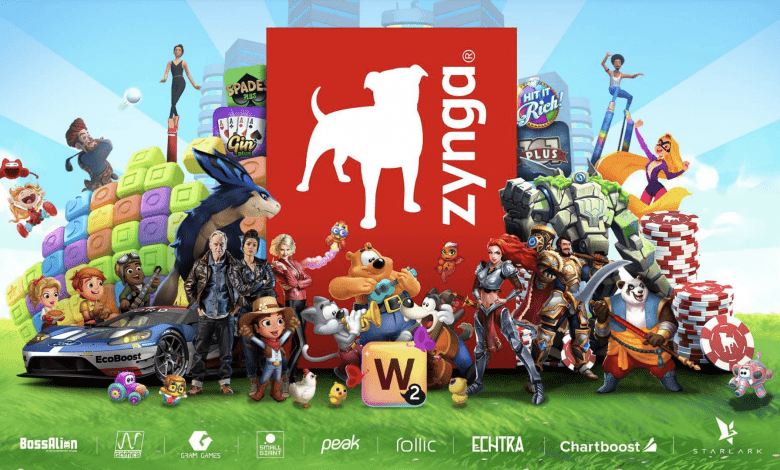Top 10 Intriguing Reasons Gaming Is Embracing Crypto and In-Game Assets But Not Ditching Everything Else
The gaming industry is in a state of flux. Cryptocurrencies and non-fungible tokens (NFTs) are making waves, promising ownership, monetization, and a more connected gaming experience. While these innovations are exciting, a complete shift away from traditional models might not be the wisest move. Let’s delve into the reasons why crypto and in-game assets are gaining traction and explore why the industry might not entirely abandon existing systems.
The Allure of Crypto and In-Game Assets
-
Ownership and Value: Traditionally, in-game items held value only within the game’s ecosystem. Crypto and NFTs grant players true ownership of digital assets. These assets can be traded on external marketplaces, potentially generating real-world income. This empowers players and fosters a sense of investment in the game.
-
Play-to-Earn Potential: Cryptocurrency integration allows for “play-to-earn” models. Players can earn crypto rewards for completing tasks or winning matches. This opens up new avenues for gamers to potentially generate income while enjoying their favorite pastime.
-
Interoperability and Scarcity: Blockchain technology can enable in-game assets to be used across different games. Imagine using your hard-earned sword from game A in game B! Additionally, NFTs can create limited edition items, fostering a sense of scarcity and collectability.
-
Community and Governance: Cryptocurrency can be used for in-game governance, allowing players to participate in decision-making processes within the game world. This fosters a stronger sense of community and ownership.
The Future: A Hybrid Approach
The future of gaming likely lies in a hybrid approach, where traditional gaming experiences seamlessly integrate with innovative crypto-based models. This exciting blend offers the potential to cater to a wider audience, fostering a more diverse and inclusive gaming ecosystem.
Here’s a deeper exploration of how this hybrid future might unfold:
Catering to Diverse Preferences:
The beauty of the hybrid approach lies in its ability to cater to a wide range of player preferences. Gamers who cherish traditional experiences, captivating storylines, engaging narratives, and social interaction will continue to find a welcoming home in this space. Developers will still focus on crafting these core elements that have made gaming such a beloved pastime for generations.
On the other hand, players seeking a deeper connection with the virtual worlds they inhabit and the potential for ownership will have a plethora of options with crypto-based features. This could involve:
-
Owning in-game assets: Players can possess unique and valuable items like NFT weapons, vehicles, or virtual land, fostering a sense of accomplishment and allowing them to participate in a player-driven economy.
-
Play-to-earn opportunities: Cryptocurrencies integrated into games can empower players to earn real-world rewards for their skills and contributions to the game world.
-
Community governance: Blockchain technology can facilitate player-driven governance through Decentralized Autonomous Organizations (DAOs). This empowers players to have a say in the game’s development, shaping its future through voting on updates, content additions, and even rule changes.
Evolving Traditional Models:
Traditional game mechanics won’t be abandoned in this hybrid future. Instead, they’ll evolve and potentially benefit from the integration of crypto and in-game assets. Here are some possibilities:
-
Enhanced in-game economies: Cryptocurrencies can create more complex and dynamic economies within games. Players can buy, sell, and trade virtual goods and services, fostering a sense of community and collaboration, while developers can explore alternative revenue models beyond traditional microtransactions and loot boxes.
-
Meaningful progression: Crypto and NFTs can add a layer of meaning to traditional gameplay by allowing players to own the fruits of their labor. Completing quests, winning battles, and contributing to the in-game world can be rewarded with valuable assets, creating a more engaging and rewarding experience.
-
Esports and Competitive Gaming: Cryptocurrencies can revolutionize esports by enabling secure and transparent betting on competitive matches. Additionally, players who own NFTs of esports athletes or teams could benefit from their success, adding a new layer of excitement and fan engagement.
Also, read – Top 15 Things You Should Check Before Investing In Blockchain Gaming
Challenges and Considerations: Navigating the Uncharted Territory of Hybrid Gaming
While the hybrid future of gaming, where traditional experiences seamlessly blend with innovative crypto-based models, holds immense promise, it’s not without its hurdles. Navigating this uncharted territory requires careful consideration of several key challenges:
1. Regulation and User Adoption: Building Trust and Security
-
Regulatory Uncertainty: The world of cryptocurrencies and blockchain technology is still evolving, and the regulatory landscape remains somewhat murky. This lack of clear guidelines can create uncertainty for both developers and players. Establishing clear regulations regarding the use of cryptocurrencies and in-game assets within the gaming industry is crucial. These regulations need to:
- Protect players from fraud and scams.
- Ensure the transparency and security of in-game economies.
- Mitigate the risk of money laundering or illegal activities.
- Define ownership rights and responsibilities associated with in-game assets.
-
User Adoption and Security Concerns: For widespread adoption of the hybrid model, user concerns regarding security and privacy need to be addressed effectively. Here’s a breakdown of these concerns:
- Security: Gamers might be apprehensive about the security of their crypto wallets and in-game assets. Developers need to implement robust security measures to prevent hacking, theft, and other malicious activities. Educating players about responsible crypto management and best practices is also essential.
- Privacy: Concerns about player data privacy in the context of crypto and blockchain integration need to be addressed. Clear data privacy policies outlining how player data is collected, used, and stored are crucial.
- User-friendliness: Introducing complex features like crypto wallets and blockchain mechanics can be daunting for some players. Developers need to create user-friendly interfaces and provide educational resources to ensure a smooth user experience for all.
2. Balancing Innovation and Tradition: Respecting the Core of Gaming
The hybrid approach shouldn’t come at the expense of the core elements that have made gaming so beloved. Striking a balance between innovation and tradition is paramount. Here’s how this can be achieved:
- Prioritizing Engaging Gameplay: At its heart, gaming thrives on engaging gameplay, captivating narratives, and social interaction. These core elements should not be overshadowed by the allure of crypto and in-game assets.
- Ensuring Fair Play: The introduction of crypto and play-to-earn mechanics shouldn’t create an environment where players with more money have an unfair advantage. Developers need to implement mechanisms that ensure fair play and a level playing field for all.
- Preserving the Art of Game Design: The focus shouldn’t shift solely towards creating economies and monetization models. Storytelling, innovative mechanics, and creating immersive worlds should remain at the forefront of game design.
3. Addressing Technical Hurdles: Scaling and Interoperability
The technical aspects of implementing a hybrid model also present challenges:
- Scalability: Blockchain technology can struggle with scalability, especially when dealing with large player bases and vast amounts of in-game data. Developers need to find innovative solutions to ensure smooth operation and prevent network congestion.
- Interoperability: The dream of seamlessly carrying your prized NFT weapon across different games is exciting, but achieving true interoperability between different blockchain platforms remains a technical hurdle. Standards and protocols need to be developed to facilitate the transfer of in-game assets between different virtual worlds.
4. Ethical Considerations and Potential Pitfalls
- Predatory Practices: The “play-to-earn” model can be potentially exploited by game developers who prioritize profit over player experience. There’s a risk of games becoming grinds focused on maximizing earning potential rather than offering genuine entertainment.
- Addiction and Gambling Concerns: The integration of real-world value through cryptocurrencies raises concerns about potential addiction and gambling habits, especially for younger players. Developers need to implement responsible gaming practices and age verification measures.
- Environmental Impact: The energy consumption associated with cryptocurrency mining can be significant. The gaming industry needs to explore sustainable solutions and carbon-neutral alternatives for blockchain technology.
Despite these challenges, the hybrid future of gaming presents a landscape brimming with possibilities. By proactively addressing these challenges, fostering a collaborative environment between developers, regulators, and players, the gaming industry can navigate this uncharted territory and create a future that’s not only innovative but also secure, inclusive, and ultimately, thrilling for gamers of all stripes.
Conclusion
The gaming industry stands at the precipice of a fascinating transformation. The winds of change are propelled by the surging tide of cryptocurrencies and in-game assets, but they don’t signal a complete abandonment of the familiar shores of traditional gaming experiences. Instead, a hybrid future beckons, one that promises to enrich and expand the very essence of what it means to play.
At the heart of this transformation lies a desire to empower players. Crypto and NFTs revolutionize ownership within games, allowing players to truly possess the fruits of their virtual labors. Whether it’s a prized weapon, a unique character skin, or a coveted piece of virtual land, these in-game assets hold real-world value, fostering a deeper connection to the game world. The “play-to-earn” model empowers players to potentially generate real-world income through their dedication and skills, adding a new layer of motivation and engagement.
Beyond player empowerment, crypto and in-game assets unlock a treasure trove of possibilities for game design. The creation of complex in-game economies, where players can buy, sell, and trade virtual goods using cryptocurrencies, injects a layer of strategic depth and fosters a sense of community. Developers can explore innovative mechanics centered around ownership and scarcity, leading to entirely new genres and experiences. The potential for interoperability, where players can carry their cherished assets across different virtual worlds, shatters the boundaries between games, creating a more interconnected gaming ecosystem.
However, the allure of the new doesn’t diminish the enduring value of the traditional. Captivating storylines, engaging gameplay, and the thrill of social interaction remain the cornerstones of a truly immersive gaming experience. The hybrid future recognizes this, ensuring that these core elements aren’t sacrificed at the altar of innovation. Developers will continue to craft compelling narratives, design engaging mechanics, and foster social interaction, ensuring that the games we love retain their core essence.
The road ahead isn’t without its challenges. Regulatory frameworks need to be established to ensure security, transparency, and responsible practices within the crypto-powered gaming landscape. User adoption hinges on addressing concerns about security, privacy, and ensuring a user-friendly experience for all. Striking a balance between innovation and tradition is paramount, ensuring that the focus remains on creating engaging experiences, not solely maximizing profit. Addressing technical hurdles like scalability and interoperability requires ongoing collaboration and development. Finally, ethical considerations regarding potential predatory practices, addiction, and the environmental impact of cryptocurrency mining need to be carefully addressed.
Despite these challenges, the future of hybrid gaming is brimming with excitement. By embracing new technologies while staying true to the core principles of engaging gameplay, the gaming industry can forge a future that caters to a wider audience, empowers players, and pushes the boundaries of what’s possible in the virtual world. This future promises not just thrilling new experiences, but a more inclusive and dynamic gaming ecosystem where ownership, community, and innovation intertwine to redefine the very nature of play. The games we play are no longer mere distractions; they are evolving into vibrant virtual worlds where we can own a piece, contribute to the economy, and forge meaningful connections. The future of gaming is here, and it’s an invitation to not just play, but to participate, to create, and to truly own our place within these extraordinary digital landscapes.
Stay informed with daily updates from Blockchain Magazine on Google News. Click here to follow us and mark as favorite: [Blockchain Magazine on Google News].
Get Blockchain Insights In Inbox
Stay ahead of the curve with expert analysis and market updates.
latest from tech
Disclaimer: Any post shared by a third-party agency are sponsored and Blockchain Magazine has no views on any such posts. The views and opinions expressed in this post are those of the clients and do not necessarily reflect the official policy or position of Blockchain Magazine. The information provided in this post is for informational purposes only and should not be considered as financial, investment, or professional advice. Blockchain Magazine does not endorse or promote any specific products, services, or companies mentioned in this posts. Readers are encouraged to conduct their own research and consult with a qualified professional before making any financial decisions.

 Bitcoin
Bitcoin  Ethereum
Ethereum  Tether
Tether  XRP
XRP  Solana
Solana  Dogecoin
Dogecoin  USDC
USDC  Lido Staked Ether
Lido Staked Ether  Cardano
Cardano  TRON
TRON  Avalanche
Avalanche  Toncoin
Toncoin  Wrapped stETH
Wrapped stETH  Chainlink
Chainlink  Wrapped Bitcoin
Wrapped Bitcoin  Shiba Inu
Shiba Inu  Sui
Sui  Hedera
Hedera  Polkadot
Polkadot  WETH
WETH  Stellar
Stellar  Hyperliquid
Hyperliquid  Bitcoin Cash
Bitcoin Cash  LEO Token
LEO Token  Uniswap
Uniswap  Pepe
Pepe  Litecoin
Litecoin  Wrapped eETH
Wrapped eETH  Ethena USDe
Ethena USDe  NEAR Protocol
NEAR Protocol  USDS
USDS  Aptos
Aptos  Internet Computer
Internet Computer  Aave
Aave  Mantle
Mantle  POL (ex-MATIC)
POL (ex-MATIC)  Cronos
Cronos  Ethereum Classic
Ethereum Classic  WhiteBIT Coin
WhiteBIT Coin  Render
Render  Virtuals Protocol
Virtuals Protocol  Monero
Monero  MANTRA
MANTRA  Dai
Dai  Artificial Superintelligence Alliance
Artificial Superintelligence Alliance  Bittensor
Bittensor  Arbitrum
Arbitrum 


